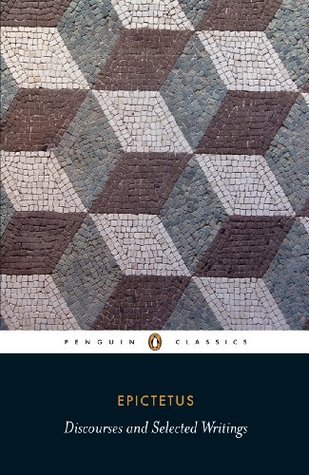More on this book
Community
Kindle Notes & Highlights
Epictetus has a plain and practical agenda: he wants his students to make a clean break with received patterns of thinking and behaving, to reject popular morality and put conventional notions of good and bad behind them; in short, he aims to inspire in his readers something like a religious conversion, only not by appeal to any articles of faith or the promise of life in the hereafter (Stoics did not believe in the afterlife), but by appeal to reason alone.
‘The [Stoic] school leaves us free to choose our own lives.’
Stoic morality: that no one does wrong willingly; that harming another hurts the offender rather than the injured party; that material ‘goods’ can do as much harm as good, and should therefore be classified as value-neutral;
‘You have only to doze for a moment, and all is lost. For ruin and salvation both have their source inside you’
No one reading deeply in Epictetus can doubt that he believes humans are capable of moral progress, and that it makes sense to distinguish between degrees of virtue and vice.
Epictetus is admired by ordinary people who have the desire to be benefited and who perceive improvement from his writings’
aim of our studies should be to direct the mind with a view to forming true and sound judgments about whatever comes before it … [A person should consider] how to increase the natural light of his reason … in order that his intellect should show his will what decision it ought
I undertook to conquer myself rather than fortune, and to alter my desires rather than change the order of the world, and to accustom myself to believe that nothing is entirely in our power except our own thoughts … Here, I think, is the secret of those ancient philosophers who were able to free themselves from the tyranny of fortune, or, despite suffering and poverty, to rival the gods in happiness.
this body does not belong to you, it is only cunningly constructed clay.
Freedom, you see, is having events go in accordance with our will, never contrary to it.
You forget the virtues of character you have in reserve, just when problems that they can control present themselves, and you could use their help.
When someone is properly grounded in life, they shouldn’t have to look outside themselves for approval.
don’t look for help from philosophy except in areas where you have learned that help from it can be found.
‘Be confident in everything outside the will, and cautious in everything under the will’s control.’ [6] For if evil is a matter of the will, then caution is needed there; and if everything beyond the will and not in our control is immaterial to us, then those things can be approached with confidence.
life is indifferent, but the use we make of it is not indifferent.
‘All roads to Hades are of equal length.’
Plato’s dictum: ‘Every soul is deprived of the truth against its will.’
The soul will never reject a clear impression of good,
Why do you want to read anyway – for the sake of amusement or mere erudition? Those are poor, fatuous pretexts. Reading should serve the goal of attaining peace; if it doesn’t make you peaceful, what good is it?
Don’t hope that events will turn out the way you want, welcome events in whichever way they happen: this is the path to peace.


